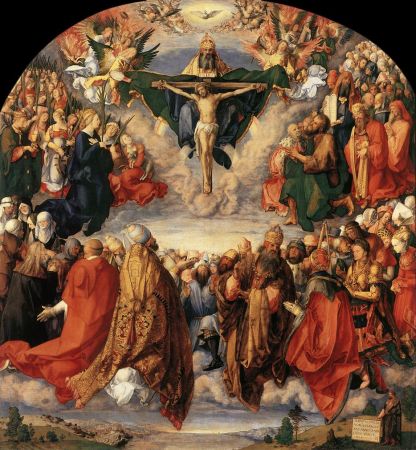
The Kingdom and the Church
Jesus answered, “My Kingdom is not an earthly kingdom. If it were, my followers would fight to keep me from being handed over to the Jewish leaders. But my Kingdom is not of this world.
John 18:35-36
The Kingdom of God is the presence of the future–a foretaste of heaven. It is a foretaste–an advance sample–of what life will be like when dwelling in God’s exquisite presence in heaven. The kingdom is the inbreaking of heaven: the dynamic rule and reign of God has come and presently is touching the earth. All that heaven will be–freedom from sickness, deliverance from oppression, joy in forgiveness, etc.–experienced now in Christ Jesus. The Kingdom has come in Christ and is advancing throughout the world and the Kingdom will be fully established upon the return of Christ.
Presently, the kingdom of God spiritually reigns in the hearts of those who have made Christ Lord of their lives and is manifested in and through them by the Holy Spirit’s presence, preaching of the Gospel, healing of the sick, and release from demonic bondage, etc. (Luke 4:16-20, 43). The Kingdom of God advances by conquering men and women’s hearts through the power of the Cross: the Holy Spirit changes us from self-centered slobs to Christ-centered servants (John 3:3; 2 Cor. 5:14-15).
What is the relationship of the church to the kingdom? On the one hand, the church is a “pilot plant†of the kingdom of God. It is not simply a collection of individuals who are forgiven. It is a “royal nation†(1 Peter 2:9), in other words, a counterculture. The church is to be a new society in which the world can see what family dynamics, business practices, race relations, and all of life can be under the kingship of Jesus Christ. God is out to heal all the effects of sin: psychological, social, and physical.
On the other hand, the church is to be an agent of the kingdom. It is not only to model the healing of God’s rule but it is to spread it. “You are . . . a royal priesthood, a holy nation . . . that you may declare the praises of him who called you out of darkness into his wonderful light†(1 Peter 2:9). Christians go into the world as witnesses of the kingdom (Acts 1:6-8). To spread the kingdom of God is more than simply winning people to Christ. It is also working for the healing of persons, families, relationships, and nations; it is doing deeds of mercy and seeking justice. It is ordering lives and relationships and institutions and communities according to God’s authority to bring in the blessedness of the kingdom.
Timothy J. Keller, Ministries of Mercy: The Call of the Jericho Road, 2nd ed. (Phillipsburg, NJ: P&R), 54.








